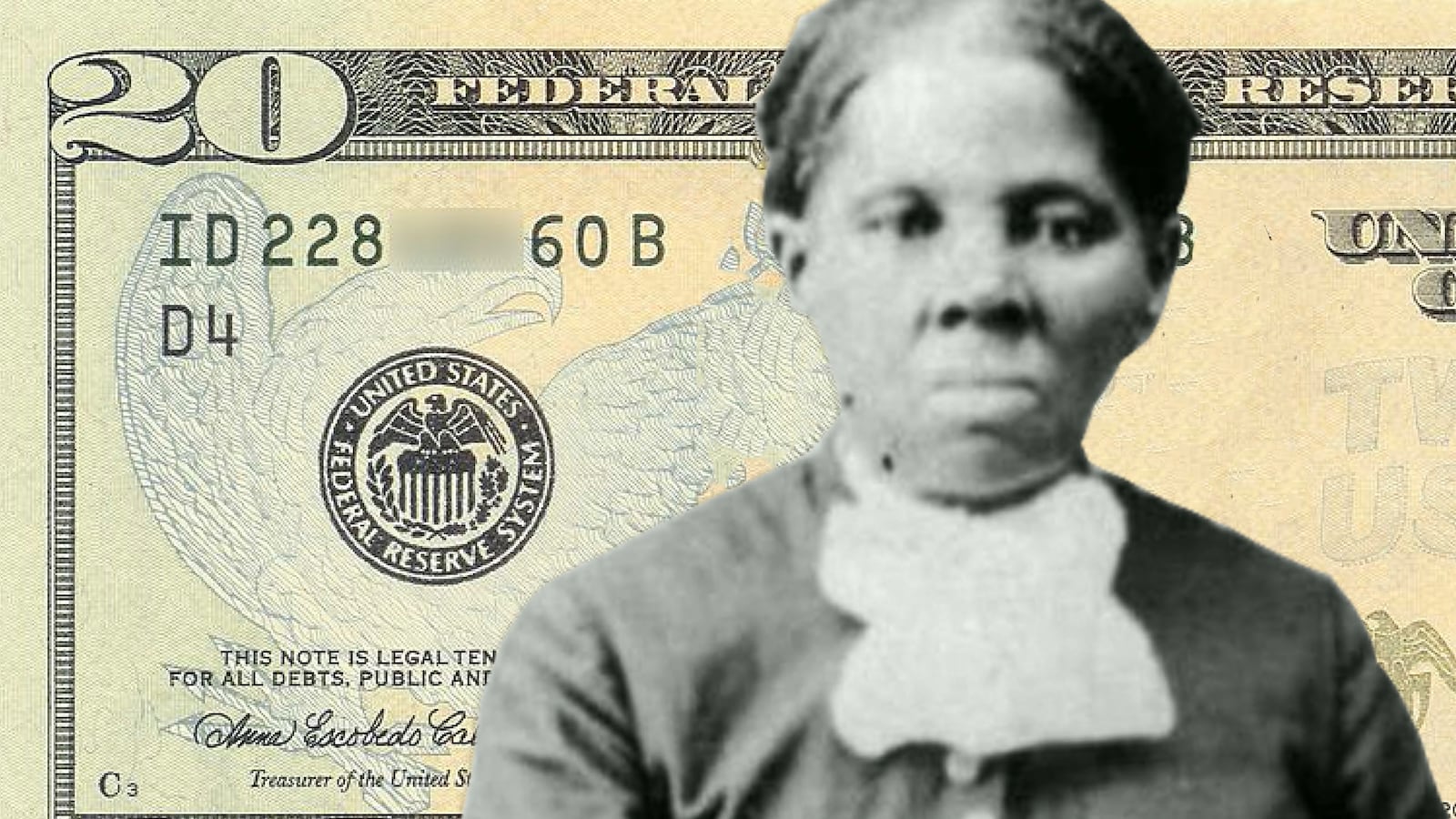Once again, President Donald Trump’s fondness for a shoot-first-ask-questions-later strongman with a questionable record on human rights has landed him in hot water.
No, not Russian President Vladimir Putin. Or Rodrigo Duterte of the Philippines, Recep Tayyip Erdoğan of Turkey, Abdel Fattah el-Sisi of Egypt, or any of the other would-be autocrats for whom the president has expressed consistent warmth. This time, the object of Trump’s admiration is a long-dead American president: Andrew Jackson.
In a meandering hodge-podge of half-remembered facts and supposition rarely seen outside high school history classrooms, Trump told Salena Zito on Sirius XM radio on Monday that the American Civil War could “have been worked out” had Jackson been in charge at the time.
“He was a very tough person, but he had a big heart. He was really angry that he saw what was happening with regard to the Civil War. He said, ‘There’s no reason for this,’” Trump said, apparently in reference to Jackson’s threat to invade South Carolina during the Nullification Crisis of 1832, three decades before the outbreak of the Civil War.
Trump continued: “People don’t realize, you know, the Civil War, if you think about it, why? People don’t ask that question, but why was there the Civil War? Why could that one not have been worked out?”
The president doubled down on his remarks with a tweet on Monday evening, claiming Jackson saw the Civil War “coming” and was “angry” about it:
Trump’s musings about Jackson’s ability to prevent the War Between the States has raised questions—well, questions in addition to “why was there a Civil War” (one that, perhaps, a person should be able to answer before being elected president).
Specifically, will the president’s fondness for Jackson interfere with the Treasury Department’s plans to remove the seventh president’s portrait from the $20 bill?
In April 2016, then-Secretary of the Treasury Jack Lew announced that Jackson’s scowling visage would be replaced on the $20 bill with a portrait of Harriet Tubman, who escaped slavery and in turn helped hundreds of enslaved people navigate the Underground Railroad to reach freedom. The decision came after Treasury’s initial plan—to place Tubman on the $10 bill, replacing musical-inspiring smokeshow Alexander Hamilton, the nation’s first Treasury secretary—was met with the fervent opposition of Broadway fans.
Jackson, an admittedly complex figure in American history who inspired his own (underrated!) Broadway musical, is a logical candidate for replacement on U.S. currency. Although his navigation of the Nullification Crisis arguably helped delay the Civil War for three decades, giving the North time to industrialize, his opposition to the central banking system that now prints his face on money would seem to make him an ironic addition to greenbacks. (His signing the Indian Removal Act of 1830 certainly doesn’t help, either.)
But Trump is apparently more of a fan of Bloody Bloody Andrew Jackson than Hamilton. (After the reception Vice President Mike Pence received at the Richard Rodgers Theater last November, though, that might be understandable.)
Trump—who has described himself as a Jackson “fan”—has made efforts to bring “Old Hickory” back, partially due to the influence of White House chief strategist Steve Bannon. As The Daily Beast reported in March, Bannon discussed Jackson’s historical legacy with Trump frequently during the 2016 campaign, comparing the two men as outsiders who battled complacent political elites.
“Trump would say he had heard this pundit or this person making the comparison, and [Steve] would encourage him and tell him how it was true,” a Trump campaign adviser told The Daily Beast. “It was a way to flatter him, too. Bannon and Trump talked about a lot, but this was the president they had casual [conversations] about the most.”
Bannon’s reported comparisons were apparently to Trump’s liking. Since his inauguration, the president has hung a portrait of Jackson in the Oval Office, honored the anniversary of Jackson’s birth with a visit to the Hermitage, Jackson’s cotton plantation in Nashville, Tennessee, and even tweeted a photo of himself saluting Jackson’s grave:
“It was during the revolution that Jackson first took on and defied the arrogant elite. Does that sound familiar to you?” Trump said in his remarks at the Hermitage. “I wonder why they keep talking about Trump and Jackson, Jackson and Trump. Oh, I know the feeling, Andrew!”
Considering that Trump once posited that he could shoot someone in the middle of Fifth Avenue and still win an election, it’s perhaps unnecessary to overexamine his fondness for the only U.S. president to have killed a man in a duel.
But the president’s fandom of the seventh president may affect more than just decorative decisions in the West Wing. Last April, Trump indicated that the placement of Tubman, only the second woman on paper currency in the Treasury Department’s 225-year history, on the $20 was an act of “pure political correctness” run amok. He called the decision to remove Jackson “rough.”
“Andrew Jackson had a history of tremendous success for the country,” Trump told the Today show at the time. “I think Harriet Tubman is fantastic. I would love to leave Andrew Jackson and see if we can come up with another denomination. Maybe we do the $2 bill or another bill. I don’t like seeing it.”
The Treasury Department and the Bureau of Engraving and Printing did not respond to requests for comment regarding the fate of the $20 bill redesign, although the Treasury Department’s web page on the portrait swap is still active.
Nonetheless, the woman who spearheaded the campaign to put a woman on U.S. paper currency is not feeling confident about Tubman’s chances.
“We are keeping a very close eye as to any further signal and any delay or change in the progress towards having design and production ready for Harriet Tubman on the $20 bill by 2020,” Women on 20s founder Barbara Ortiz told AFP, cautioning that Trump “seems to be using every opportunity to extol the virtues of Jackson.”






